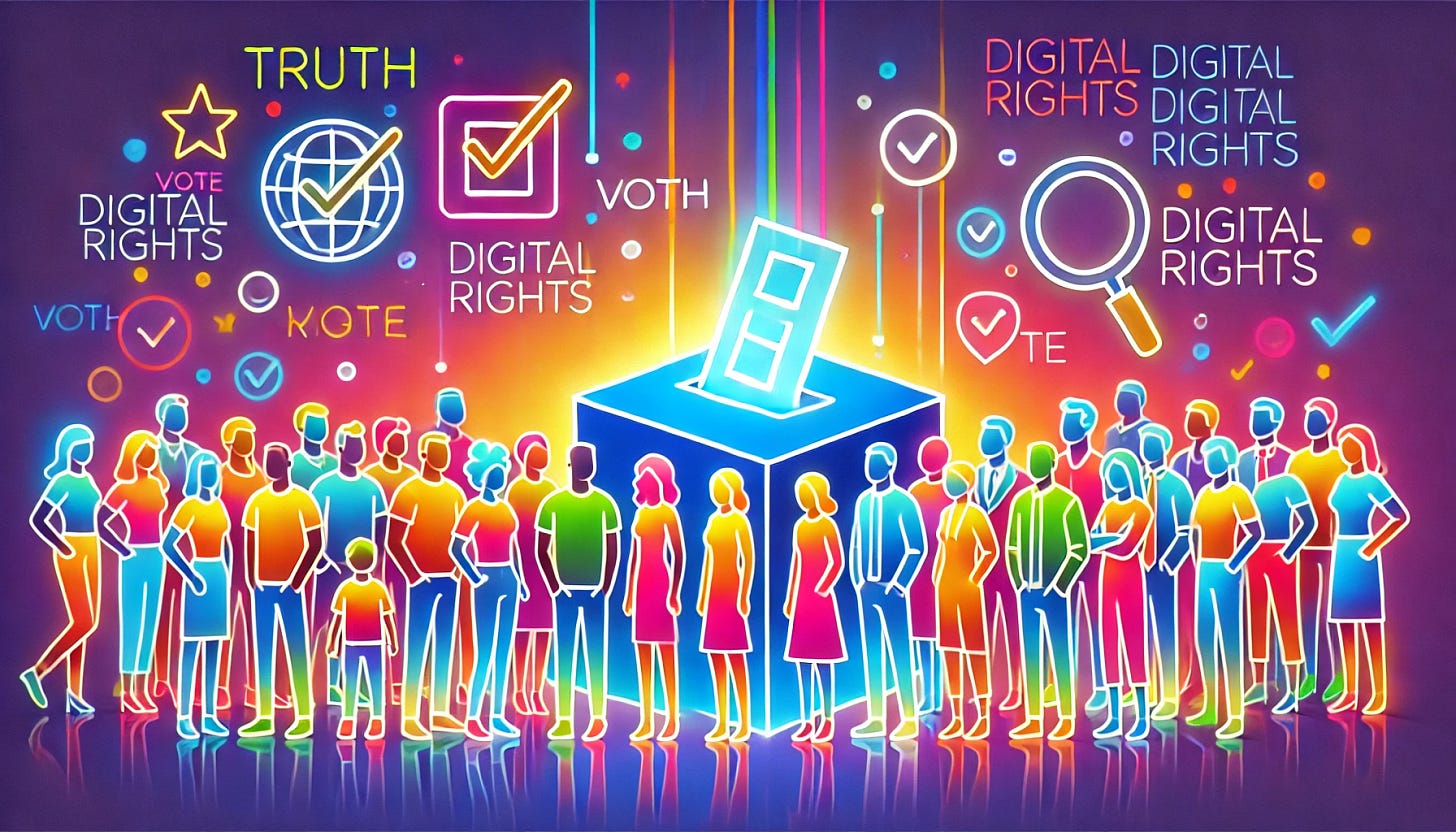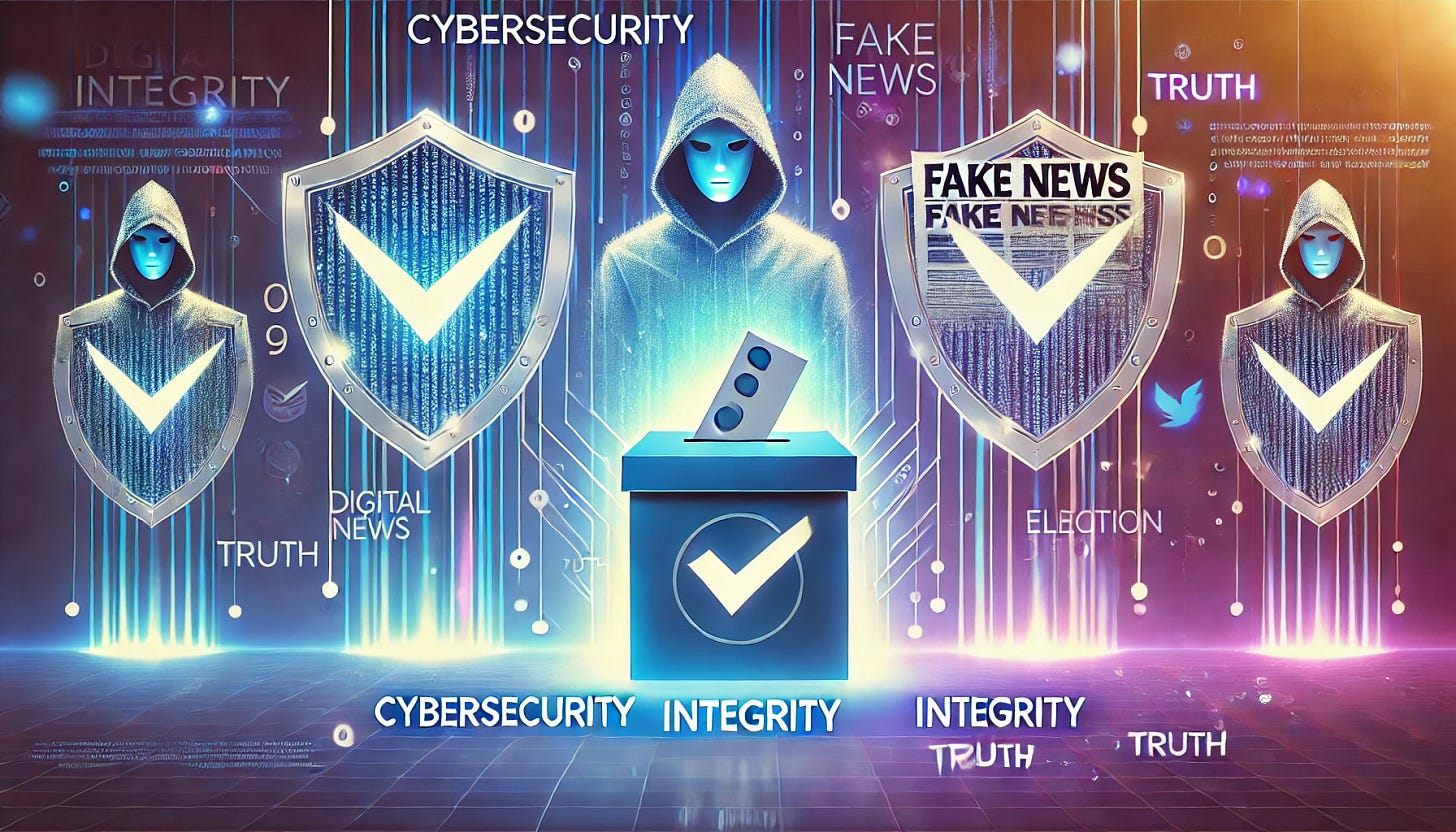🟦Election Integrity, Disinformation & Cybersecurity
A ranked guide to advocacy groups securing elections and combating disinformation
In an age of disinformation and cybersecurity threats, various advocacy groups are dedicated to safeguarding democracy and ensuring secure elections.
Understanding Misinformation vs. Disinformation
Misinformation is false or misleading information shared without the intent to deceive, like someone posting a rumor about a food curing a disease because they believe it’s true.
Disinformation is deliberately false information shared to deceive or manipulate, such as a political group spreading a fake story to damage a candidate's reputation.
Institute for Strategic Dialogue (ISD)
Works globally to combat online disinformation and extremism through research and public policy advocacy.
Electronic Frontier Foundation (EFF)
Defends civil liberties in the digital realm, focusing on privacy, free expression, and protecting user data from misuse.
Center for Democracy & Technology (CDT)
Advocates for digital rights and privacy, promoting policies to ensure cybersecurity and protect personal information.
Provides essential information on voter registration and participation while addressing misinformation about the voting process.
Promotes media literacy education to empower individuals to critically evaluate information and recognize both misinformation and disinformation.
Advocates for solutions that protect consumer privacy, push for better connectivity for students and families, and hold tech companies accountable to ensure a healthy internet.
Monitors and corrects misinformation in the media, focusing on promoting accuracy and combating disinformation.
Center for Digital Democracy (CDD)
Advocates for policies that protect consumers and promote privacy in the digital landscape, working against the manipulation of information online.
International Fact-Checking Network (IFCN)
A global network that promotes fact-checking and transparency in media, working to combat misinformation and improve public discourse.
Cybersecurity and Infrastructure Security Agency (CISA)
A U.S. government agency that collaborates with various sectors to enhance cybersecurity and protect critical infrastructure from threats. Recent leadership changes may affect its effectiveness, especially regarding authoritarian policies.
Advocacy Issues
Disinformation Campaigns: The spread of deliberately false information designed to mislead the public can undermine trust in electoral processes and influence voter behavior.
Cybersecurity Threats: Protecting electoral systems from cyber-attacks and other threats is essential to maintaining the integrity of elections in the face of both misinformation and disinformation.
Manipulation of Social Media Algorithms: Understanding how algorithms can amplify both misinformation and disinformation, leading to polarization, is crucial for developing effective countermeasures.
Impact of Foreign Interference: Addressing tactics used by foreign entities to spread disinformation and manipulate public opinion is critical for national security and electoral integrity.
Election Security: Ensuring robust security measures to protect against breaches and safeguard electoral processes is vital for maintaining trust in the electoral system.
Media Literacy: Educating the public on how to critically evaluate information sources can help combat misinformation effectively.
Misinformation about Voting Procedures: Addressing false claims regarding how to vote, including registration and



